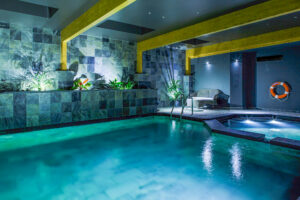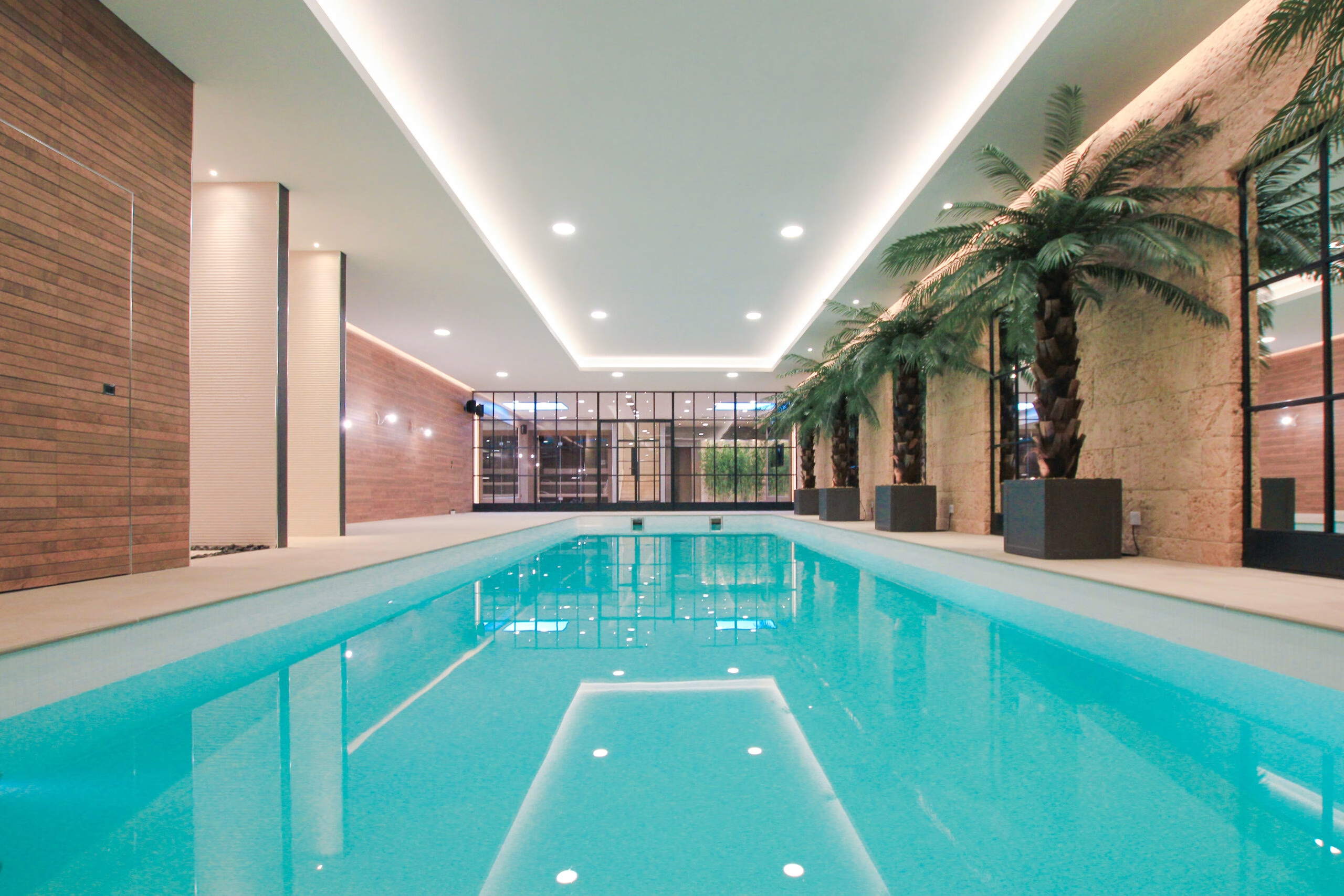Recently, Clear Water Revival showed you all the important decisions to consider when building your dream swimming pool. One element which can easily be overlooked when thinking about indoor pool design and budgets is air handling. So we thought we’d put a quick crib sheet together about what it is, what to expect and how to factor it into your plans.
What is air handling?
Air handling for indoor swimming pools is the process in which your air handling unit (AHU) reconditions the warm wet air from inside and brings fresh outside air in to replace it. Making your pool hall a fresh pleasant place to be, by keeping pool water within 1 degree of the air temperature.
Normally, especially in England, the pool has a higher average temperature of around 26 °C than the surrounding air (which only averages 21 °C). This leads to evaporation of the pool water, which condenses and forms on surfaces such as windows or roof lights.
This can be problematic.
The fix is an Air Handling Unit (AHU), a machine made up of fans, heating or cooling coils, air-control dampers, filters and silencers. It is used to recondition the air by removing the warm wet air from inside, whilst fresh outside air is brought in to replace it. In addition, the condensed water, can also be recovered and reconditioned for reuse in the pool.
(Another factor which contributes to the efficiency of your air handling unit which prevents evaporation of the swimming pool water, this means your air handling unit does not have to work quite as hard, see our blog on swimming pool covers!)
Where should the ductwork be placed?
The routing of the ductwork is an essential part of the ventilation system, as it transports air to and from the pool hall. We recommend ductwork is built in voids below floor level with air vents and grilles beneath windows. A ceiling level extraction is needed to remove warm wet air from the pool hall. The design of this system is one of the services CWR offers as we will work with the wider design team to ensure it’s aesthetically pleasing.

Why is air handling important?
Not only is it crucial that the costing of air handling is taken into account to help you finalise an accurate project budget, but a fully functioning air handling system prevents the negative repercussions of condensation potentially saving future maintenance costs. An efficient system ensures pool hall air is comfortable for users and prevents, the pool room from becoming too hot or cold by utilising the outside air. The preventative nature of air handling averts future problems from untreated condensation, e.g mould, but most importantly it ensures the pool hall to be a pleasant environment for your family.
CWR is the only organisation that can successfully provide 100% chemical-free swimming pools. Our pool hall air remains fresh without any of the chloramine smells, or other downsides associated with chemicals acting on organic materials.
Environmental and economic benefits to efficient air handling
CWR are passionate about the environment and recognise the environmental and economic benefits limiting the energy use of air handling systems. We tackle this in the design stages by looking at the positioning and type of air handling units, to ensure maximum efficiency.
If designed and placed appropriately, they may be able to recycle pool air into other spaces within multi-purpose buildings such as hotels, containing saunas and spas, thus using less energy and reducing operational costs.
For a domestic project, an AHU can cost between £10,500 and £20,000 depending on the size and complexity of the ductwork and plant room space. The ductwork itself will cost somewhere between, £12,500 and £20,000 depending on type of the materials and setting.
If you are interested in embarking on a new swimming pool journey, Clear Water Revival has the expertise to guide you through every single stage of the process.

